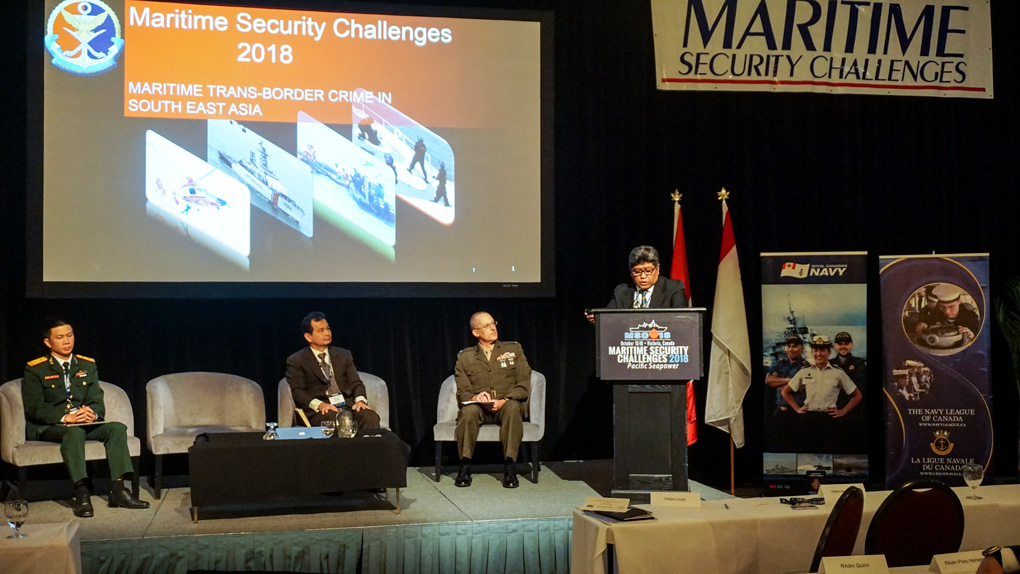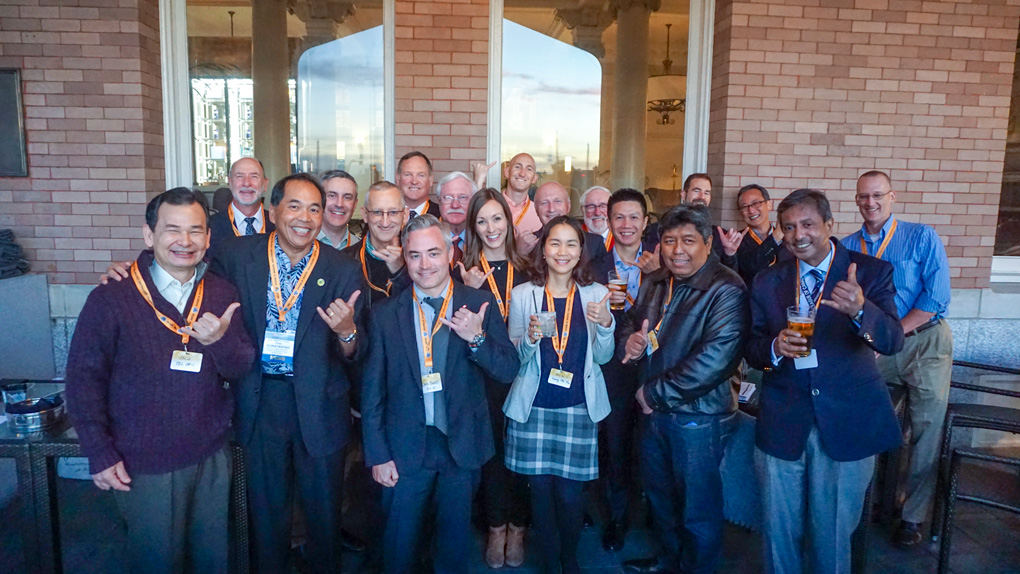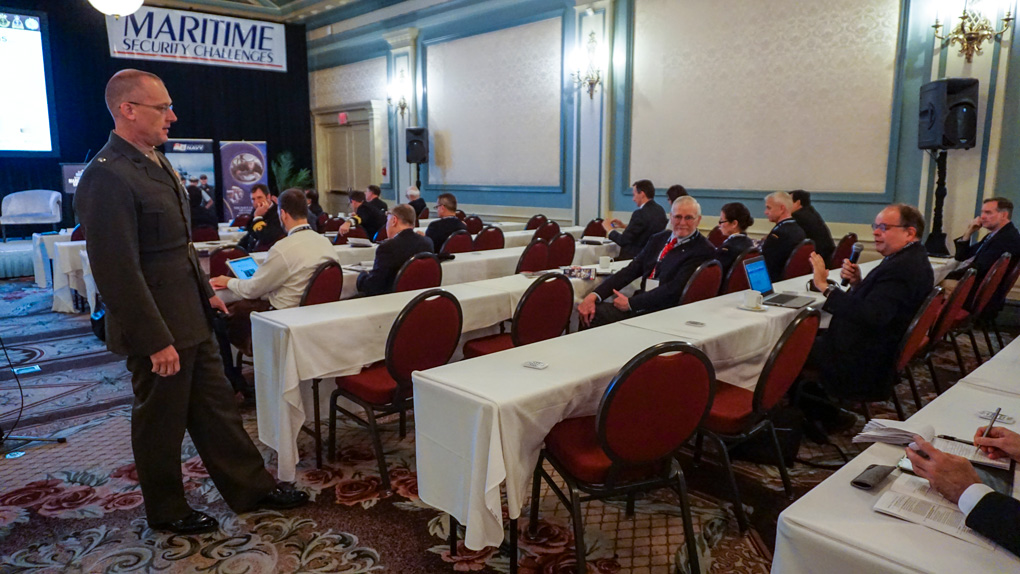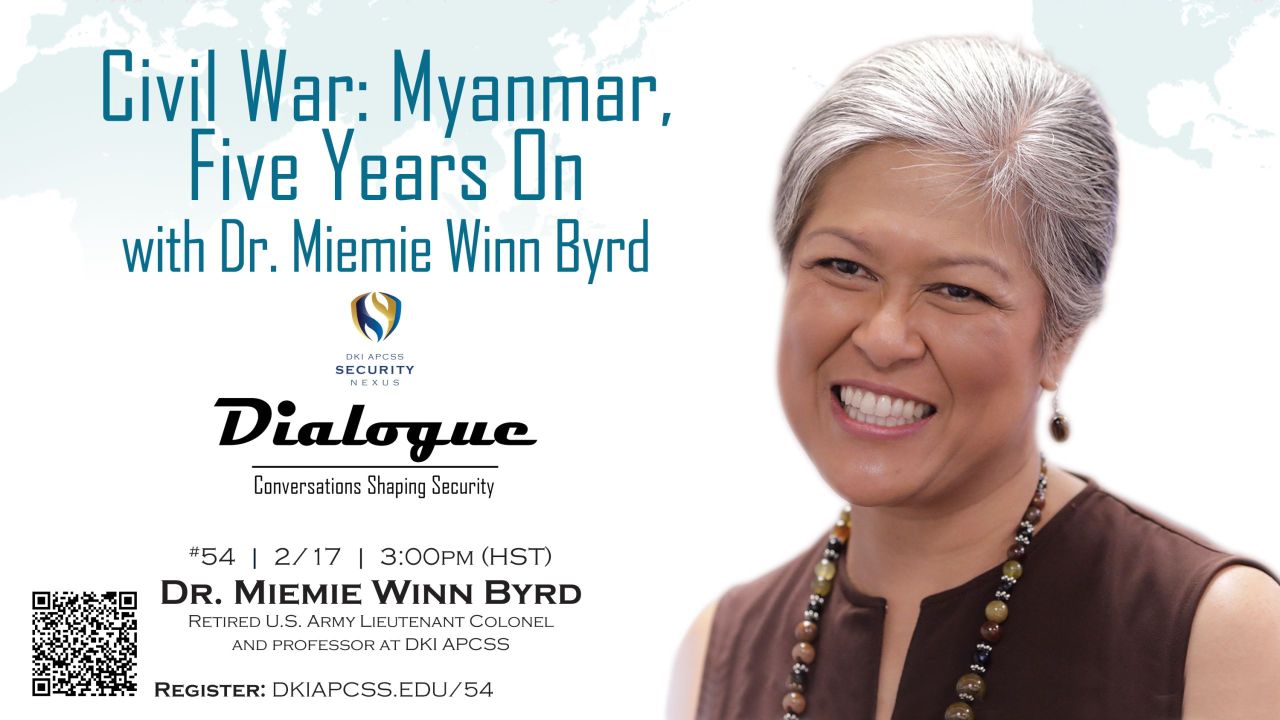By Lt. Col. Scott McDonald, USMC
The end of the relative stability of the bi-polar Cold War has given way to a complex and challenging security environment. Meanwhile, the growth of multinational supply chains and supranational information flows have emphasized the importance of the sea in a manner not appreciated since the Nineteenth Century. These factors have highlighted the need for cooperative solutions to the security challenges of what Commander of the Royal Canadian Navy (RCN), Vice-Admiral Ron Lloyd calls the “Maritime Century.”
With this context, security practitioners from Canada and across the Indo-Pacific gathered in Victoria, British Columbia from 16 to 18 October 2018 for the 8th iteration of the bi-annual Maritime Security Challenges conference. This event, co-presented by the RCN, the Naval League of Canada, and the Daniel K. Inouye Asia-Pacific Center for Security Studies (DKI APCSS), brought together over 180 practitioners from 23 countries to explore issues ranging from building the future fleet, to building strategic resolve, and everything in between.
In 2012, DKI APCSS was invited to join the conference in order to leverage its world-class faculty and extensive alumni network, and MSC-18 was no exception. In addition to leveraging the expertise of geostrategic experts like Dr. Mohan Malik, who spoke on “Strategic Posturing in the Indo-Pacific,” the Center was able to access its alumni network and bring six alumni subject matter experts to present regional views on the challenges facing the region.
Ms. Hoang Thi Ha (ASC12-1) of the Association of Southeast Asian Nations Studies Centre was the first alumni presenter, bringing not only a regional perspective to building strategic resolve, but ensuring conference attendees looked beyond defense policy and grey-hulled ships to understand the value that partnering and multilateral organizations bring to regional security. She was followed by a panel on “The Future Fleet,” where Lieutenant General Jun Nagashima (TS15-1) of the Japanese Air Self Defense Force challenged the concept of single domain warfare and encouraged attendees to think differently about how air power is employed in the maritime environment. He was joined by Vice Admiral (ret) P.K. Chatterjee (SEC08-2) of the Indian Navy, who gave a regional impression of the expansion of submarine fleets and what their use and maintenance means for the region.
Three more alumni formed an all-APCSS panel to highlight the value of cooperation. The three presentations linked the importance cooperation from the strategic to tactical level. Vice-Admiral (ret) Jose Luis M. Alano (TSC09-1), formerly of the Philippine Navy, but now with the National Coast Watch Council Secretariat, provided a strategic and structural view of cooperation as network building. He was followed by Captain (Maritime) Ahmad Faridi bin Ferdaus (CSRT16-1) of the Malaysian Maritime Enforcement Agency, who demonstrated the nature of trans-national criminal networks and how the solution required networks both within and between regional states. Finally, Lieutenant Colonel Ngo Xuan Truong (ASC17-1) of Vietnam’s Institute of Defense International Relations used this backdrop to discuss the importance of cooperation to his own country, tying the strategic to the tactical-level of cooperation.
All alumni received many compliments and thanks for their performance, one participant noting the “world-class talent” that DKI APCSS brought to the event. Of course, no trip would be complete without an alumni function, where Director Gumataotao welcomed about a dozen alumni from the Victoria Alumni Association. Many distinguished alumni attended the conference, including the local RCN commander, Rear Admiral Robert Auchterlonie, (TS18-1). He just recently returned to his role as Commander, Maritime Forces Pacific after serving as the Deputy Commander of RIMPAC-18, the largest combined naval exercise in the world. This role saw him lead cooperative efforts by 25 countries.
Cooperation among alumni was reflected the next morning in Director Gumataotao’s presentation emphasizing the cooperative and principles-based approach advocated in the U.S. National Security Strategy and the Free and Open Indo-Pacific framework. He was followed by DKI APCSS Military Professor Lieutenant Colonel McDonald, who facilitated a polling session to bring a broader cross-section of the conference attendees into the conversation. Through polling responses and comments this emphasized the universal nature of the principles represented in the U.S. approach to regional security.
Overall, Maritime Security Challenges-18 was a useful tool for encouraging security practitioners who routinely work with Indo-Pacific states, to hear the opinions and listen to the viewpoints of those who live in the region. This was made possible, in large part, due to the commitment to excellence and cooperation demonstrated routinely by the alumni network of DKI APCSS.












Leave A Comment